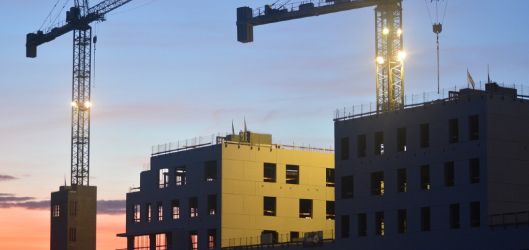
BSI, the business standards company, has published BS EN 1090-2:2018 Execution of steel structures and aluminium structures. Technical requirements for steel structures.
This European Standard specifies requirements for execution of steel structures, in order to ensure adequate levels of mechanical resistance and stability, serviceability and durability. As part two of a five part standard, the revised BS EN 1090-2 specifies requirements for execution of structural steelwork as structures or as manufactured components, produced from:
- Hot rolled, structural steel products up to and including grade S700
- Cold formed components and sheeting up to and including grade S700 (unless coming within the scope of BS EN 1090-4)
- Hot finished or cold formed austenitic, austenitic-ferritic and ferritic stainless steel products
- Hot finished or cold-formed structural hollow sections, including standard range and custom-made rolled products and hollow sections manufactured by welding
The main changes in the 2018 version of the standard over its predecessor are as follows:
- Technical requirements for cold-formed structural steel elements, members and sheeting and cold-formed steel structures for roof, ceiling, floor, wall, and cladding applications have been removed from this Part of the BS EN 1090 series, as they are given in EN 1090-4
- Informative Annex B giving guidance for the determination of execution class has been removed as normative requirements for the selection of execution class are now included in of BS EN 1993-1-1:2005/A1:2014, Annex C
- A new informative Annex D has been included giving guidance on a procedure for checking the capability of thermal cutting processes
- A new informative Annex I has been included giving guidance on determination of the loss of preload from thick coatings on contact surfaces in preloaded connections
- Normative Annex J “Use of compressible washer-type direct tension indicators” has been removed
- A new informative Annex L has been included giving guidance on the selection of weld inspection classes
Dr David Moore, Director of Engineering at the British Constructional Steelwork Association, said: “Execution classes from BS EN 1090-2 are used by steelwork contractors to put in place a set of manufacturing process controls that form part of a certified factory production control system for CE-marking fabricated steelwork. They offer a common approach to selecting the right level of quality and assurance controls needed to ensure the structure meets the engineer’s design assumptions.”
More information on the standard can be found online: https://shop.bsigroup.com/ProductDetail/?pid=000000000030320417



